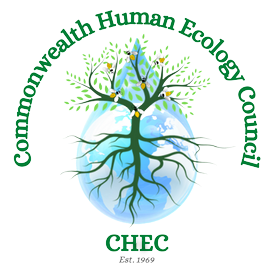World Bee Day 2022
This year the UN theme for World Bee Day is “Bee engaged – Celebrating the diversity of bees and beekeeping systems" with a virtual event to raise awareness on the importance of the wide variety of bees and sustainable beekeeping systems, their contribution to livelihoods and food systems and the threats and challenges they face and what we all must do to #SaveTheBees.
The Beginning of World Bee Day
The United Nations approved the idea of World Bee day in December 2017, and the First World Bee Day was celebrated on Sunday, 20 May 2018. Boštjan Noč, the initiator of World Bee Day, believed it is vital to set aside one day so that the international community can rally around the important role of bees in providing food security:
"To talk about reducing world hunger without ensuring conditions for the existence of bees and other pollinators is to pull the wool over people's eyes. It is time for everyone to listen to bees, in particular leaders and decision-makers. From now on, 20 May will be a worldwide celebration of bees and beekeepers. I believe that with the proclamation of World Bee Day, the world will begin to think more broadly about bees, in particular in the context of ensuring the conditions for their survival, and thus for the survival of the human race."
CHEC, Bees and World Bee Day
In the years leading up to the first World Bee Day, CHEC worked with Friends of the Earth and a team of experts including authors of the UN Intergovernmental Panel of Biodiversity and Ecosystems (IPBES) on a report launched in Malta to alert the Commonwealth Heads of Government attending CHOGM 2015 on the decline of bees and pollinators.
CHEC’s report championed the role of Bees and pollinators for global food security - the “unsung pollinating heroes to help ensure plenty of good quality food is available, our economies prosper and our wildlife thrives" - Professor Simon Potts, Co-Chair, Pollinators assessment (IPBES).
Yet the growing evidence remains that bees are declining in many regions of the world and under sustained threat. The causes and drivers of decline are a combination of damage to and loss of natural habitats, caused by insensitive development and the growth of intensive agriculture; disease, effects of climate change; pollution, pesticides, the spread of pathogens and invasive non-native plants and animals species; hunting.
It’s important to emphasize the decline of bees is both a rural and an urban crisis. Sustainable urban areas, when planned and managed properly, can “contribute to climate change mitigation efforts by lowering the ecological footprint associated with intensive food production." At the same time, urban agriculture can enhance climate change adaptation efforts by increasing vegetation cover for bees, biodiversity and reducing surface water run-of.
For centuries bees, among the hardest working creatures on the planet, have benefited people, plants and the environment. By carrying pollen from one flower to another, bees and other pollinators enable not only the production of an abundance of fruits, nuts and seeds, but also more variety and better quality, contributing to food security and nutrition.
We must act now as the “present species extinction rates are 100 to 1,000 times higher than normal due to human impacts. Close to 35 percent of invertebrate pollinators, particularly bees and butterflies, and about 17 percent of vertebrate pollinators, such as bats, face extinction globally" according to the UN. One obvious urgent step we can do to achieve sustainable development goals and protect habitats for bees is not to cut the verges on the sides of roads, train tracks, airports, and not to mow our lawns. Let the grass and wild flowers grow.
World Bee Day Event
Poster for World Bee Day Event: Bee engaged – Celebrating the diversity of bees and beekeeping systems
The UN will be hosting a free webinar called “Bee engaged – Celebrating the diversity of bees and beekeeping systems" at 13:00 – 14:30 CEST.
The event will focus attention on the role of different species of local bees and beekeeping systems in improving food security and livelihoods, by providing a range of products and ecosystem services, and what governments, agrifood systems actors and the public can do to protect them. The event will feature bee and pollinator experts and practitioners from across the world and will open with a video message by FAO Director-General QU Dongyu.
The agenda can be found here: "Bee Engaged" Webinar Agenda
If you're interested in the event then you can join and register here: "Bee Engaged" Registration Link
And don't forget to support World Bee Day using the following hashtags - #WorldBeeDay #SaveTheBees
Article written by CHEC's Jane Samuels
"No Bees, No Life" Banner


